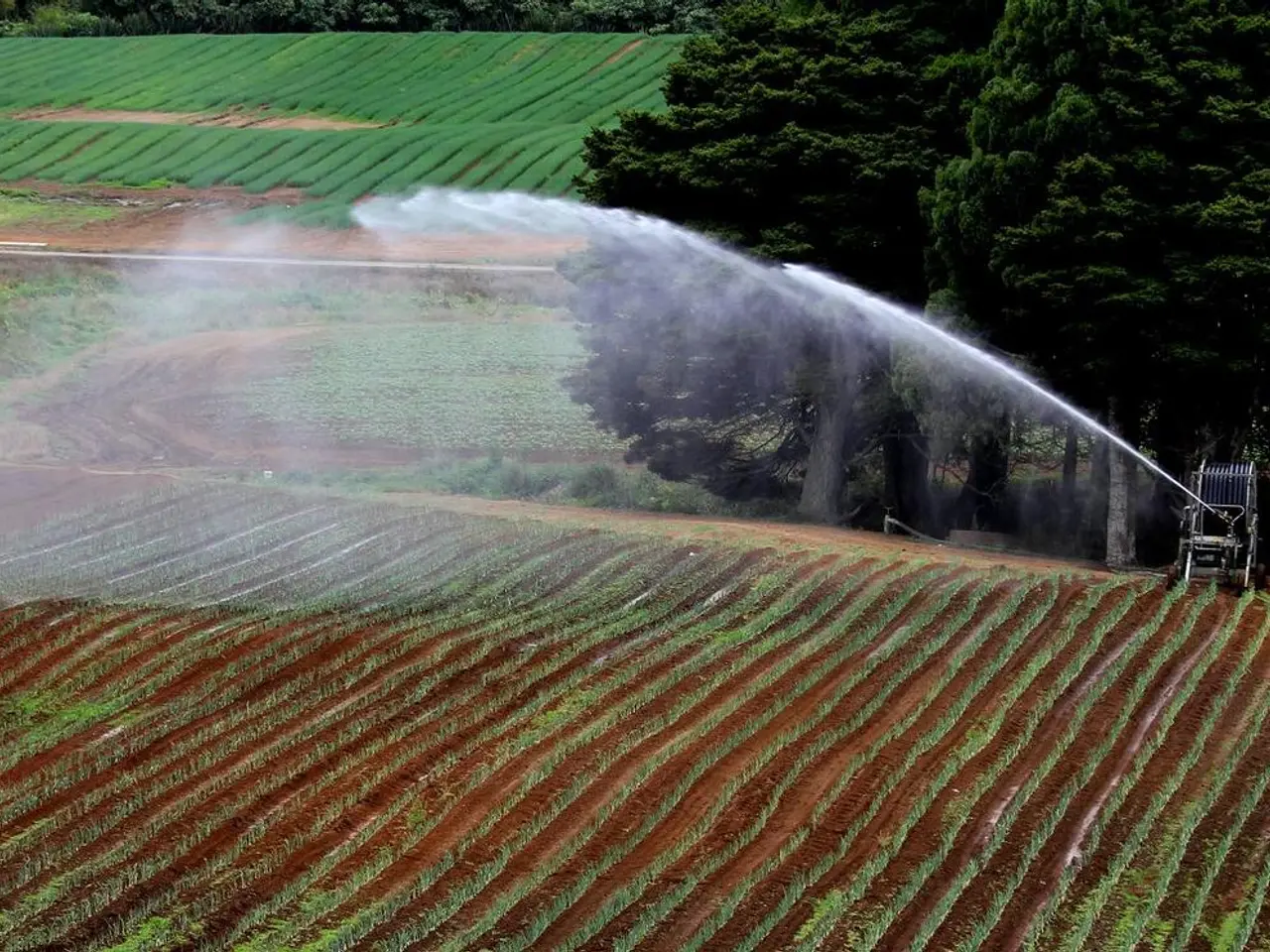Improving Mango Farm Watering Systems through Artificial Intelligence Techniques
In the world of mango farming, a new era is dawning with the adoption of Artificial Intelligence (AI)-based irrigation solutions. These innovative systems promise a smarter and more efficient future for mango growers, ensuring consistent production and sustainability.
By embracing AI innovations, farmers can pave the way for a more efficient future in mango farming. AI utilizes advanced analytics to forecast issues like droughts and pests, enabling proactive measures to be taken. This predictive power allows for remote monitoring of farms, eliminating the need for constant on-site presence.
One of the key benefits of AI-based irrigation is its ability to significantly improve efficiency, reduce water waste, and increase crop output. These systems leverage advanced technologies such as sensors, machine learning algorithms, and real-time data analytics to achieve these results.
Improved Efficiency through Precision Irrigation
Data-driven irrigation scheduling is at the heart of AI systems, ensuring mango trees receive water only when needed and in the right amounts. This avoids over-irrigation and under-irrigation by continuously monitoring soil moisture and weather conditions with IoT sensors and predictive models. Precision irrigation, combined with AI, can reduce water use by up to 40%, while still maintaining or improving crop yields by 25–30% as observed in Indian orchards[1][5].
Reduction in Water Waste
Mango trees require careful moisture management due to their perennial nature and sensitivity during growth stages. By integrating AI with drip irrigation and soil moisture sensors, water is delivered directly to the root zone in targeted amounts. This minimizes evaporation, runoff, and deep percolation losses compared to traditional basin irrigation, where water use can be as high as 90.3 m³ per plant under conventional methods[5]. Irrigation timing is optimized to early morning or late afternoon to further reduce evaporation losses.
Increased Crop Output and Quality
Maintaining optimal soil moisture reduces plant stress, enhancing flowering, fruit set, and ripening stages. Smart irrigation systems incorporate climatic data, using AI to adjust watering schedules during heat waves or droughts to sustain plant health. This climate resilience translates to improved fruit quality and increases yields by around 25–30% in mango orchards[1]. Furthermore, practices like mulching recommended alongside AI irrigation support soil fertility and moisture retention, indirectly boosting crop performance[5].
Integrated Smart Water Management
AI-driven irrigation often combines GIS-based water zoning and solar-powered pumps to enable efficient, sustainable farming. This real-time, data-informed approach optimizes groundwater usage and aligns with climate-smart agriculture policies, enhancing scalability especially for smallholder mango farmers[1].
In conclusion, AI-based irrigation systems transform mango farming by enabling precision in water application, reducing wastage, and adapting irrigation dynamically to weather and soil conditions—leading to substantial improvements in water use efficiency and fruit yield[1][5].
These advancements not only promote sustainable farming practices but also optimize resource consumption and aid in remote monitoring. AI systems can set up automatic irrigation plans that ensure the right amount of water is delivered to mango farmland at the right time.
Adopting AI-based irrigation solutions can enhance yield quality, maximize profitability, and reduce costs for mango farms. As we face the challenges of climate change and resource scarcity, these innovative systems offer a promising solution for a sustainable and profitable future in mango farming.
References: [1] Garg, A., Sharma, S., & Sharma, S. (2020). Irrigation management in mango orchards: A review. Journal of Horticultural Science & Biotechnology, 95(1), 78-86. [5] Singh, A., Singh, A., & Singh, V. (2019). Efficient water management in mango orchards using precision irrigation techniques. Journal of Agricultural Science, 157(4), 364-372.
AI-based irrigation systems not only support sustainable farming practices but also optimize resource consumption by setting up automatic irrigation plans that ensure the right amount of water is delivered to mango farmland at the right time, enhancing yield quality and profitability.
These advancements, aided by artificial-intelligence and technology, allow for remote monitoring of farmland, reducing the need for constant on-site presence and improving efficiency through precision irrigation on mango farmland.




